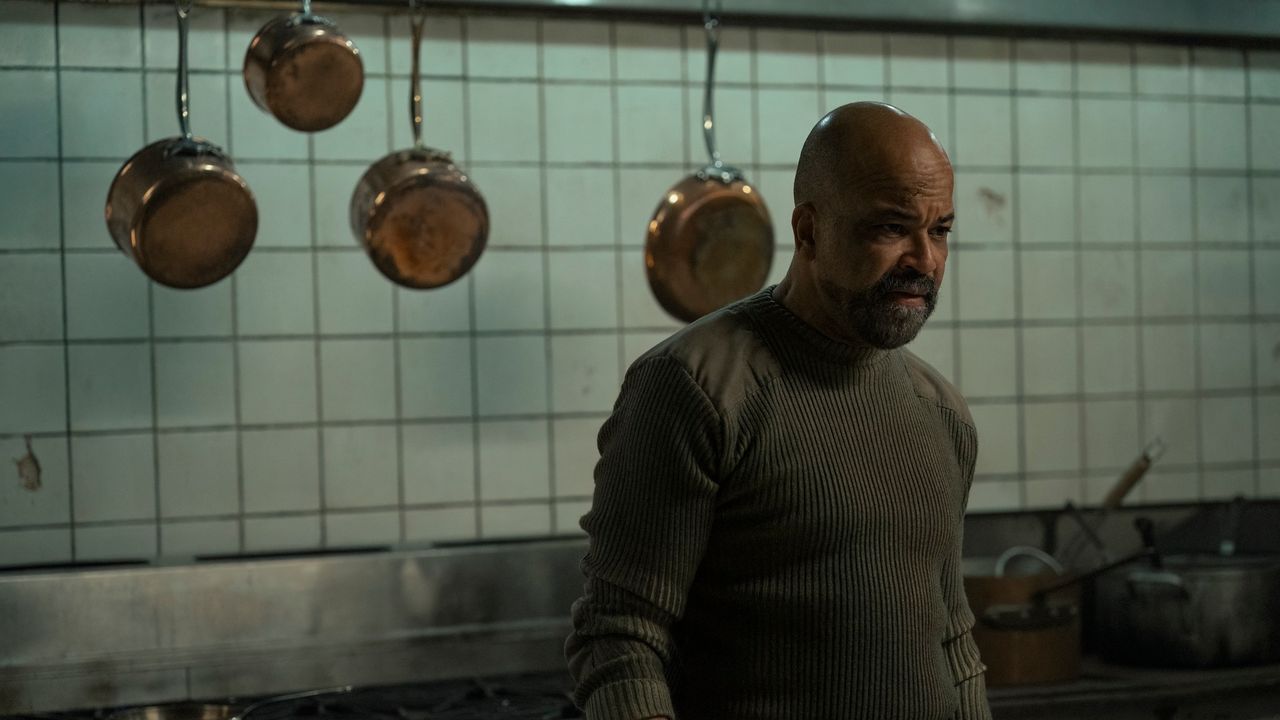Tonally, this episode swings in a couple of different directions, between the love story and the action sequence. How are you trying to balance and manage those tones across the episode?
For me, with tone, because I’ve done quite a lot of tonal jumping around, I always think about it like a music scale. You have to gradually build up to those moments. You can’t get to the subway straight away. You need the TV station before that to earn the subway. “Take on Me” is this really quiet, intimate scene. But you don’t get that without having them first walk through Seattle. There’s a sense of unease because they see all the skeletons, but at the same time, there’s a sense of, “Okay, they’re definitely alone in this place.” So when they go into the music shop and that’s happening with the song, we are not telling the audience to be scared there.
We’re telling them, “No, you can enjoy this with the characters because we’ve told you in this moment that they’re not under threat.” With the tones, that’s always what you’re going to do. Then, you reset it. You cut to Jeffrey in a kitchen, and it’s like, “Oh, actually, the tone has gone in this direction now.” For me, when stuff tonally sometimes feels jarring, it’s when you’re trying to put such different tones opposite each other, and that’s where it can feel jarring. Whereas when you gradually build up to stuff, you can earn them more.
In terms of you as a filmmaker, how important is it for you to be able to put your stamp on and help tell these kind of queer stories?
Look, I was massively flattered and excited that they gave me episode four. I think that it’s a massive privilege to get to tell stories like this because so often when I was growing up, most queer stories were in very specific queer media. There were a few in big mainstream shows, but not many. What’s so exciting to me about The Last of Us is that this is in a massive show that is watched by many people. At the center, you have these two characters, it’s a queer love story, and it gives as much space as you would see for any other love story normally. It was a massive privilege and very exciting, and I’m very proud of the work.
In the trajectory of your career so far, you’ve worked a lot in genre. What is it about genre that keeps you coming back to it or keeps you excited to play in those worlds?
It’s what I love watching. I’ve always been drawn to sci-fi and fantasy. I don’t know, so many of my favorite films, like, I love Alien, Starship Troopers, Galaxy Quest. They’re all so different, those films I just listed, but I love fantastical worlds, a fantastical story, like The Princess Bride. I like the escapism of watching something like that, but then I’m always so led by character. If you’re going to give me a world like that, give me a cool character that I can get on board with. Maybe they have an aspect of their personality, even though our lives are so different, that I can relate to, and I can be like, “Oh, I understand this. They feel like that could be me.”
I love genre. It’s so much fun. As a director, I’ve been very lucky. You walk on these sets and you feel like you’re standing on an alien planet or in the middle of your favorite video game. I just love it.
I’d be remiss if I didn’t ask how The Sims was coming along. Where are you in that process?
We’re all very excited about it. I’m busy writing on it, and we’re just working away on it. But it’s going well. Everyone’s feeling very good and excited.

